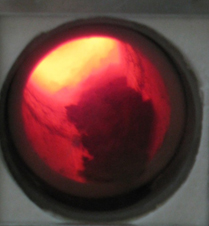Labor-Drehrohrkalzinator

Description:
Hydraulic calcium hydrosilicates (h-CHS, “Celitement”) are sustainable cementitious binders with up to 50% reduced energy demand and CO2 emissions compared to Ordinary Portland Cement. The commonly used feedstock materials quick lime and sand for h-CSH production can be replaced advantageously by calcium silicates, e.g. C2S. The C2S based process results in further improved energy efficiency and opens up a wide range of special raw materials such as clays or micas as well as many solid residues from combustion and metallurgical processes for the manufacture of the new cement type. Using such special raw materials as feedstock has additional economic potential for the separation of valuable material as a by-product.
In the technical scale the C2S-synthesis can be carried out in rotary kilns. The yield of dicalcium silicate production is maximized at a Ca/Si ratio of 2 by adding alkali carbonates as mineralizing agent in a CO2-rich atmosphere. The process is operated at relative low temperatures of about 1000°C. The emission of highly concentrated CO2 is well suited for subsequent use or storage. The mineralizer can be recycled during the production of h-CHS.
Basic research for the calcination process is carried out in batch experiments and a small continuously operated externally heated rotary kiln.
Technical data of the lab scale rotary calciner for C2S production |
||
|
|
||
Refractory material |
Al2O3 |
|
Gas atmosphere |
variable |
air, N2, O2, CO2, … etc. |
|
|
||
Total length |
120 |
cm |
Heated length |
80 |
cm |
Inside diameter |
52 |
mm |
Rotation speed |
3-6 |
1/min |
Declination |
1-5 |
° |
Temperature |
950-1050 |
°C |
Max. C2S flow |
≈300 |
g/h |
Residence time |
30-60 |
min |
